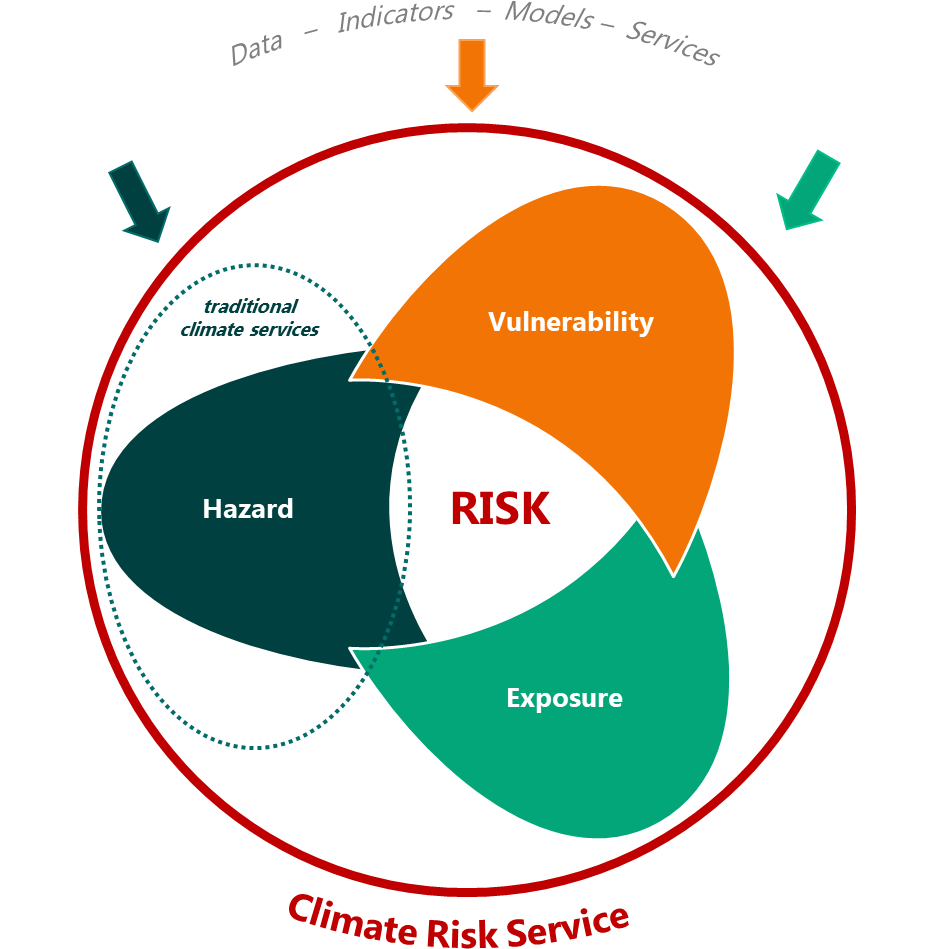About
The aim of CRiSDA: Support a knowledge-based, comprehensive climate risk management by developing a participatory process to jointly develop and explore essential tools and methods for a drought climate risk service for Austria.
Despite efforts to mitigate climate change, far-reaching impacts on the environment and society are expected in the future.
In order to mitigate the negative social and economic consequences of climate change and to identify and monitor context- and location-specific adaptation measures, a climate risk analysis is required. With the help of a climate risk service, the necessary steps and data streams are to be brought together and operationalized.
To support the management of climate risks, the IPCC has developed a risk framework:
Risk refers to the intersection of:
Hazards (possible occurrence of a natural or man-made physical event or trend resulting in damage or loss),
Exposure (the presence of elements in a given area where hazard events may occur) and
Vulnerability (the sensitivity of exposed elements such as people, their livelihoods and assets to be negatively affected by hazard events)

Researching and identifying climate risk and its components helps to understand current and potential future impacts and to identify appropriate measures for successful risk management. This facilitates holistic climate risk management.
To support this climate risk management, the concept of climate services has emerged and has gained momentum in the past. The World Meteorological Organization (WMO) defines climate services as the “provision of climate information in a way that supports the decision-making of individuals and organizations,” adding that “climate services require appropriate engagement together with an effective access mechanism and must meet the needs of users.” The need for operational and standardized climate risk services will continue to increase in the near future with the EU taxonomy for sustainable activities for companies both at the global level and in Austria at the federal and state level.
The CRiSDA project and the conception of this guideline is a direct response to these gaps and needs. Together with potential users, requirements for a possible climate risk service were identified based on the case study of drought in agriculture. The co-creation process for an experience and knowledge-based climate risk management began at the time of the project application.